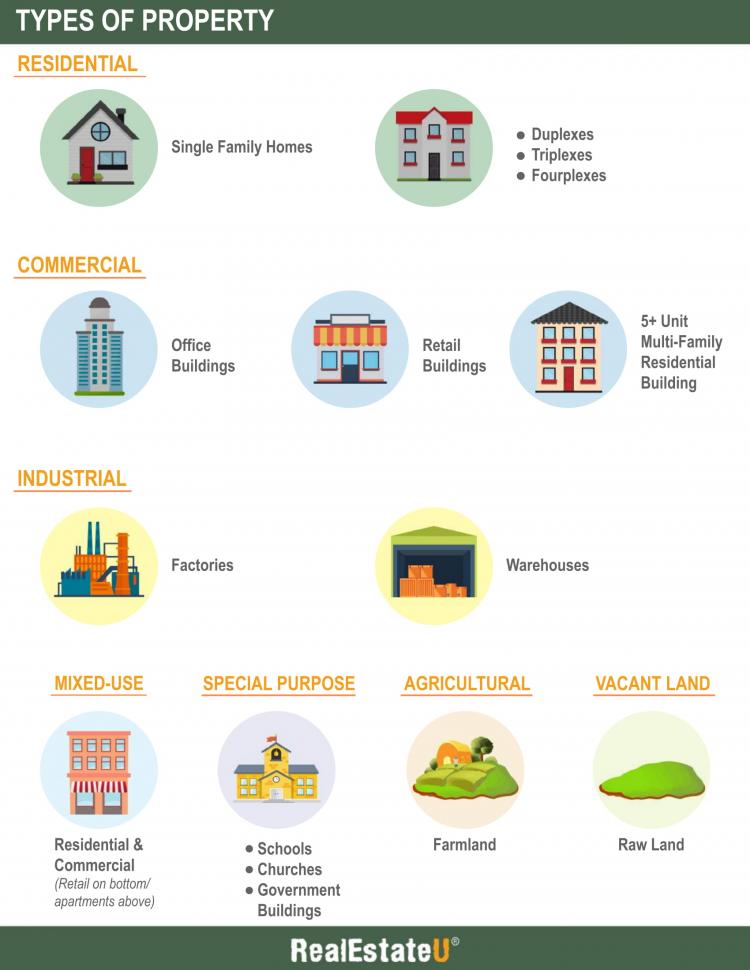Is Real Estate Investing a Viable Part-Time Venture?
Real estate investing has long been a popular way to build wealth and generate passive income. But can you do real estate as a side job? With the rise of the gig economy and increasing demand for flexible work arrangements, many individuals are exploring alternative sources of income. Real estate investing, in particular, has become an attractive option for those looking to diversify their income streams and create a more secure financial future.
For those considering real estate investing as a side job, it’s essential to understand the potential benefits and challenges involved. On the one hand, real estate investing can provide a steady stream of passive income, tax benefits, and the potential for long-term appreciation in property value. On the other hand, it requires a significant amount of time, effort, and capital to get started.
So, can you do real estate as a side job? The answer is yes, but it’s crucial to approach it with a clear understanding of the market, your financial situation, and the level of commitment required. In this article, we’ll explore the feasibility of pursuing real estate investing as a part-time venture, including the benefits, challenges, and strategies for success.
Whether you’re a busy professional, a stay-at-home parent, or simply looking to supplement your income, real estate investing can be a viable side job option. However, it’s essential to be realistic about the time and resources required to succeed in this field. With the right mindset, knowledge, and support, you can navigate the world of real estate investing and achieve your financial goals.
Understanding the Real Estate Market and Your Role in It
The real estate market is a complex and dynamic industry, with various sectors and opportunities for investment. As a part-time real estate investor, it’s essential to understand the current trends and market conditions to make informed decisions. The market can be broadly categorized into residential, commercial, and industrial sectors, each with its unique characteristics and investment opportunities.
Residential real estate, for instance, includes single-family homes, apartments, and condominiums. This sector is often considered a stable and secure investment option, with a steady demand for housing. Commercial real estate, on the other hand, encompasses office buildings, retail spaces, and warehouses. This sector can provide higher returns, but it also comes with higher risks and complexities.
As a part-time real estate investor, you can play various roles, depending on your interests, skills, and resources. You can be a landlord, renting out properties to tenants and earning passive income. Alternatively, you can be a flipper, buying undervalued properties, renovating them, and selling them for a profit. Wholesaling is another option, where you find undervalued properties and sell them to investors at a markup.
Understanding your role in the real estate market is crucial to success. It’s essential to assess your strengths, weaknesses, and resources to determine the best investment strategy for you. As a part-time investor, you may need to balance your real estate activities with your primary job, so it’s vital to set clear goals and priorities.
Whether you’re interested in residential, commercial, or industrial real estate, it’s essential to stay informed about market trends and conditions. This will help you make informed decisions and avoid costly mistakes. By understanding the real estate market and your role in it, you can set yourself up for success and achieve your investment goals.
How to Get Started in Real Estate Investing with a Full-Time Job
Getting started in real estate investing while working a full-time job requires careful planning, discipline, and a solid understanding of the market. To begin, it’s essential to set clear goals and define what you want to achieve through real estate investing. Are you looking to generate passive income, build wealth, or achieve financial independence? Knowing your goals will help you focus on the right strategies and make informed decisions.
Assessing your finances is also crucial when starting a real estate investing career. You’ll need to evaluate your income, expenses, debts, and savings to determine how much you can afford to invest. Consider creating a budget and prioritizing your expenses to free up more funds for investing. Additionally, explore financing options, such as mortgages or partnerships, to help you get started.
Building a support network is vital for part-time real estate investors. Surround yourself with experienced investors, mentors, and professionals who can provide guidance and support. Attend seminars, workshops, and online forums to learn from others and stay updated on market trends. You can also consider joining a real estate investing community or finding a partner to share the responsibilities and risks.
Another critical aspect of getting started in real estate investing is education. Continuously learn about the market, laws, and regulations that govern real estate investing. Read books, articles, and online resources to stay informed and adapt to changes in the market. You can also consider taking courses or getting certified in real estate investing to gain a competitive edge.
Finally, it’s essential to be realistic about the time and effort required to succeed in real estate investing. As a part-time investor, you’ll need to balance your investing activities with your full-time job and other responsibilities. Set realistic expectations, prioritize your tasks, and focus on making progress rather than trying to do everything at once.
By following these steps, you can get started in real estate investing while working a full-time job. Remember to stay focused, adaptable, and committed to your goals, and you’ll be well on your way to building a successful real estate investing career.
Managing Your Time and Priorities as a Part-Time Real Estate Investor
As a part-time real estate investor, managing your time and priorities is crucial to success. Balancing a full-time job with a part-time real estate investing career can be challenging, but with the right strategies, you can achieve your goals. One of the most significant challenges is finding enough time to devote to your real estate investing activities.
To overcome this challenge, it’s essential to prioritize your tasks and focus on the most critical activities. Start by creating a schedule that outlines your daily and weekly tasks, including your full-time job, real estate investing activities, and personal responsibilities. Be realistic about the time you have available and allocate it accordingly.
Another critical aspect of managing your time and priorities is learning to say no. As a part-time real estate investor, you may be tempted to take on too many projects or responsibilities, but this can lead to burnout and decreased productivity. Learn to say no to non-essential tasks and focus on the activities that will drive the greatest returns.
Effective time management also requires minimizing distractions and staying focused. Consider implementing a “time-blocking” system, where you dedicate specific times of the day or week to real estate investing activities. This will help you stay focused and avoid multitasking, which can decrease productivity.
Finally, it’s essential to maintain a healthy work-life balance as a part-time real estate investor. This means setting boundaries between your work and personal life, taking breaks when needed, and prioritizing self-care. By maintaining a healthy work-life balance, you can avoid burnout and ensure long-term success in your real estate investing career.
By following these strategies, you can effectively manage your time and priorities as a part-time real estate investor. Remember to stay focused, adaptable, and committed to your goals, and you’ll be well on your way to achieving success in the world of real estate investing.
Overcoming Common Obstacles and Staying Motivated
As a part-time real estate investor, you may face several obstacles that can hinder your progress and motivation. One of the most common obstacles is lack of experience. If you’re new to real estate investing, it’s natural to feel uncertain or overwhelmed. However, this can be overcome by seeking guidance from experienced investors, attending seminars and workshops, and reading books and online resources.
Another common obstacle is limited finances. As a part-time investor, you may not have a lot of capital to invest. However, this can be overcome by exploring alternative financing options, such as partnerships or crowdfunding. You can also consider starting small, with a single property or a small investment, and gradually scaling up as your finances grow.
Self-doubt is another common obstacle that part-time real estate investors may face. It’s natural to feel uncertain or insecure about your abilities, especially if you’re new to the industry. However, this can be overcome by focusing on your strengths, seeking support from mentors or peers, and celebrating your successes.
To stay motivated, it’s essential to set clear goals and track your progress. Break down your long-term goals into smaller, achievable milestones, and celebrate each success along the way. You can also find a mentor or join a real estate investing community to connect with other investors, share knowledge, and stay motivated.
Additionally, it’s essential to stay positive and focused on your goals. Surround yourself with positive influences, such as books, podcasts, or online resources, and avoid negative self-talk or self-doubt. By staying motivated and focused, you can overcome common obstacles and achieve success as a part-time real estate investor.
Finally, it’s essential to be patient and persistent. Real estate investing is a long-term game, and success rarely happens overnight. By staying committed to your goals, learning from your mistakes, and adapting to changes in the market, you can achieve long-term success and build a profitable side hustle in real estate investing.
Maximizing Your Earnings and Minimizing Your Risks
As a part-time real estate investor, maximizing earnings and minimizing risks are crucial to achieving success. To maximize earnings, it’s essential to identify profitable niches, such as rental properties in high-demand areas or fix-and-flip projects in up-and-coming neighborhoods. Utilizing tax-advantaged strategies, such as depreciation and mortgage interest deductions, can also help increase earnings. Additionally, leveraging other people’s money through partnerships or private lending can amplify returns.
Conducting thorough market research is vital to minimizing risks. This includes analyzing local market trends, understanding the competition, and identifying potential pitfalls. Diversifying investments across different asset classes, such as residential and commercial properties, can also help mitigate risks. Furthermore, building a solid support network of professionals, including attorneys, accountants, and contractors, can provide valuable guidance and help navigate complex situations.
Another key strategy for minimizing risks is to focus on cash flow-positive properties. This means prioritizing investments that generate consistent rental income or quick flips with high profit margins. By doing so, part-time real estate investors can ensure a steady stream of income and reduce their reliance on a single investment. Moreover, maintaining a cash reserve and having a contingency plan in place can help weather unexpected expenses or market downturns.
For those wondering, “Can I do real estate as a side job?” the answer is yes, but it requires careful planning, execution, and risk management. By following these strategies and staying informed about market trends, part-time real estate investors can maximize their earnings and minimize their risks, ultimately achieving success in this lucrative field.
Success Stories and Lessons Learned from Part-Time Real Estate Investors
Many individuals have successfully turned their passion for real estate into a profitable side hustle. One such example is Sarah, a full-time marketing executive who started investing in rental properties on the side. She began by educating herself on the local market, attending seminars, and networking with other investors. Sarah’s hard work paid off, and she now owns a portfolio of five rental properties, generating a significant passive income stream.
Another inspiring story is that of John, a part-time real estate investor who started flipping houses while working as a full-time teacher. John’s strategy was to focus on distressed properties in up-and-coming neighborhoods, which he would renovate and sell for a profit. Through his experiences, John learned the importance of perseverance, adaptability, and continuous learning. He now earns a substantial income from his real estate investments, allowing him to pursue his passion for teaching without financial stress.
These success stories demonstrate that, with the right mindset and strategy, it is possible to achieve success as a part-time real estate investor. So, can you do real estate as a side job? The answer is yes, but it requires dedication, hard work, and a willingness to learn. By following in the footsteps of successful part-time real estate investors like Sarah and John, you can create a profitable side hustle that generates passive income and helps you achieve your financial goals.
One key lesson learned from these success stories is the importance of perseverance. Part-time real estate investing can be challenging, especially when faced with unexpected setbacks or market fluctuations. However, by staying focused and motivated, you can overcome these obstacles and achieve long-term success. Another crucial lesson is the need for continuous learning. The real estate market is constantly evolving, and it’s essential to stay up-to-date with the latest trends, strategies, and best practices.
By learning from the experiences of successful part-time real estate investors, you can avoid common pitfalls and stay on the path to success. Remember, real estate investing is a journey, not a destination. With the right mindset, strategy, and support, you can turn your passion into a profitable side hustle and achieve financial freedom.
Conclusion: Is Real Estate Investing a Viable Side Job for You?
In conclusion, real estate investing can be a viable side job for those who are willing to put in the time and effort to learn and adapt. As discussed throughout this article, there are many benefits to pursuing real estate investing as a part-time venture, including passive income, wealth creation, and tax advantages. However, it’s essential to be aware of the potential challenges and risks involved, such as market fluctuations, tenant management, and financial constraints.
So, can you do real estate as a side job? The answer is yes, but it’s crucial to approach this venture with a clear understanding of the pros and cons. By setting realistic goals, assessing your finances, and building a support network, you can increase your chances of success. Additionally, staying motivated, persevering through obstacles, and continuously learning from your experiences are essential to achieving long-term success in real estate investing.
Ultimately, whether real estate investing is a viable side job for you depends on your individual circumstances, financial situation, and personal goals. If you’re willing to put in the work and take calculated risks, real estate investing can be a lucrative and rewarding side hustle. However, if you’re not prepared to handle the challenges and responsibilities that come with real estate investing, it may not be the best fit for you.
Before making a decision, take the time to reflect on your goals, assess your finances, and research the real estate market in your area. Consider seeking guidance from a financial advisor or real estate expert to help you make an informed decision. With the right mindset and strategy, you can turn your passion for real estate into a profitable side hustle and achieve financial freedom.







